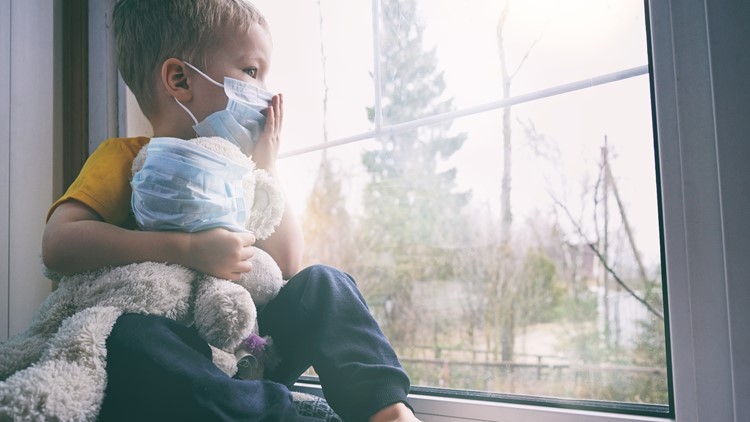DALLAS — COVID-19 cases are going up again and the 7-day average of weekly cases has doubled in the past month in Texas, now about 6,000 per day. With new guidance on medicine, vaccines and testing, it can be tough to keep up with how to handle a positive test or an exposure to the virus. TESTING POSITIVE AND ISOLATING Dr.
Joseph Chang is the Chief Medical Officer at Parkland Health, and his simple answer to what to do after a positive test is “it depends. ” For someone under the age of 65 with no underlying health conditions, the best advice is isolating at home. “Go home, isolate yourself, don’t get anyone else sick,” Chang said.
“If you feel like garbage and you want to go get some Motrin to help yourself feel better, bring your fever down — NyQuil, all of those things are fine. ” Dr. David Winter is at Baylor Scott & White and also says over-the-counter medicine and time are the best treatments for those young and healthy.
“Drink lots of water. You’re going to need rest,” he said. “Get the rest, don’t fight that and then use over the counter cough medication, anti-inflammatory medicine, Advil, Aleve, acetaminophen if you’d like.
” Expect to experience fatigue, sore throat and a dry cough, but if symptoms begin to include confusion, passing out or trouble breathing, see a doctor or go to the ER. “I mean trouble breathing like you’re sitting there watching TV, and you’re like, ‘oh my gosh, I have to take some deep breaths,’ or ‘I don’t feel very good’,” Chang said. “Trouble breathing like that, get yourself to a doctor so they can check you out.
” A pulse oximeter can be bought at a pharmacy for around $10-20 and tracks oxygen levels. Dr. Winter said a reading below 92% is a sign to see a doctor.
For those over 65 or with pre-existing health conditions , it’s best to consult a primary care physician after a positive test. Doctors can help with getting antibody treatments or the antiviral pill Paxlovid, which has been shown to reduce the risk of hospitalization. “Give you a terrible taste in your mouth, that’s the worst side effect that I’ve seen,” Dr.
Winter said. “But it works well, and you can get that if you want it, but not everybody needs that right now. ” QUARANTINING AND TESTING After a confirmed exposure, it may not be necessary to test right away since COVID-19 has an incubation period before a person will become infectious and shed enough virus to create a positive test.
It’s best to wait 4-7 days after the exposure to test. A single negative test isn’t confirmation a person has not contracted COVID-19, and it’s best to test another time a day or two later. “When in doubt, just get a test, they’re pretty darn good, especially if you do them serially,” Winter said.
We want to stop the spread of this virus so we can finally go back to life as usual. ” A family member testing positive should be isolated, but those who are close contacts should follow quarantine guidance from the CDC on testing and masking. The CDC has an online guide to walk people through how long to isolate or quarantine and the best times to test.
Since January, most people have been able to go online or to a pharmacy to buy at-home COVID-19 test kits for free with a limit of eight tests per person per month. Some companies sell tests in packages of two, in that case, the person would be reimbursed for four packages which would be eight tests. CVS and Walgreens both have lists of reimbursement-eligible tests.
Unfortunately, insurance companies don’t follow a single plan for allowing people to be reimbursed for tests purchased at stores and not free. Humana has a walkthrough guide on its website on how to purchase online or in-person as well as how to find the reimbursement form for people charged for tests who kept receipts. Most of the information for UnitedHealthcare members requires a login to access.
Blue Cross Blue Shield says members using pharmacies in the Prime network shouldn’t have to be at the counter, but they also have a form to fill out for those who paid but kept their receipts. More details are found on their FAQ page under ‘How can I get at-home test kits at no cost?’. If you want to stock up but don’t need tests immediately, the easiest option is likely ordering for free through the USPS which will provide eight tests per order.
Tests available now have a shelf life of 4-15 months so it’s not a bad idea to purchase them in advance. VACCINATION MATTERS Tests help prevent spread, but vaccines are critical as immunity from Omicron’s surge fades. “’Well, people who get vaccinated get sick too’, well yeah that’s true, but they have a whole lot less chance of dying, so that’s a good thing, and the chances of you getting sick are much, much, much lower,” Chang said.
Chang said he’s also wondering what the CDC and FDA will advise for people who received boosters a year ago and are wondering about the possibility of a fourth dose. “Our experience with this disease is not nearly extensive enough for us to make those kinds of predictions,” he said. “If you haven’t been vaccinated, for God’s sake, let’s go get that done.
” “They are going to continue to mutate, the next one could be a bad one so that’s what I worry about,” Winter said. .
From: wfaa
URL: https://www.wfaa.com/article/news/health/coronavirus/you-tested-positive-covid-19-exposed-now-what/287-3349ac1d-783f-4a02-861d-e578e1c85af9



